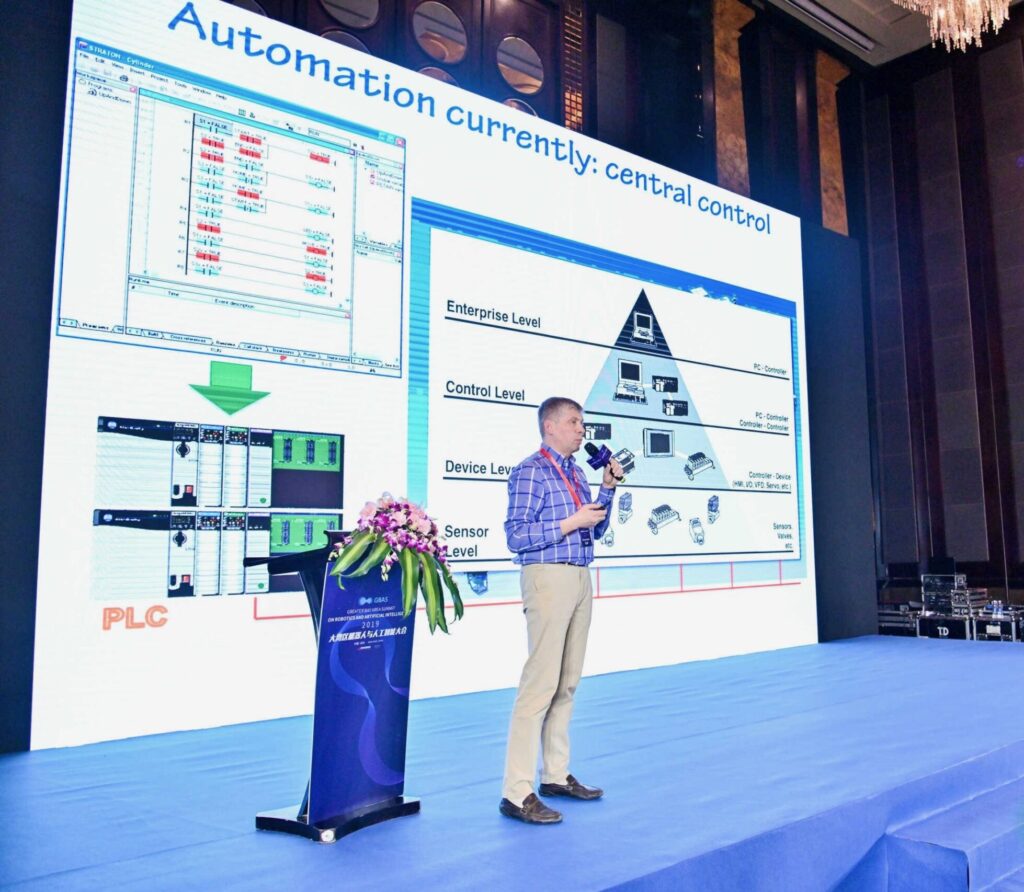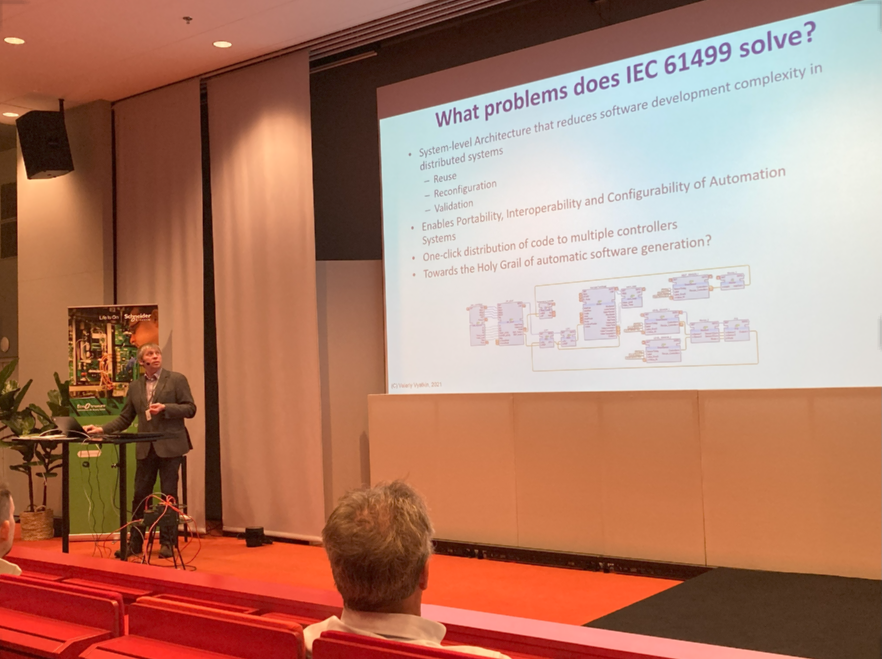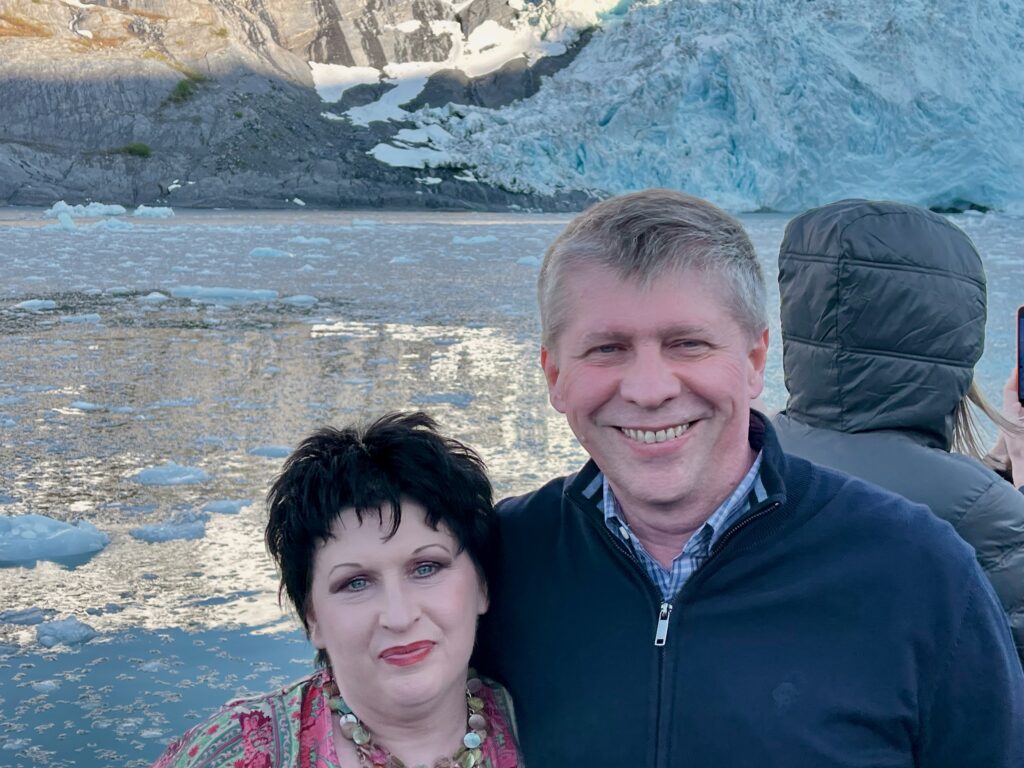Meet our Vice-President for Technical Activities, Valeriy Vyatkin
We had the great pleasure to talk with Prof. Valeriy Vyatkin about his role as the Vice-President for Technical Activities at IEEE IES. We discovered how rigor and perseverance benefited not only the career of this thoughtful professor, but also our whole society.
ITeN team: Dear professor, thanks a lot for being with us today, can you start by telling us about the highlights of your career?
I have been working in industrial automation and in particular software design for Industrial Automation systems all my career. I never had any major twist; all my life I have enjoyed working in this exciting area.
Just before I started my Ph.D. studies, I managed to sign a research contract with a very big company that produces automation systems. This contract was perfectly related to my Ph.D. topic and lasted throughout the course of my studies. As a Ph.D. student, I was leading a team of more junior students and together we developed a software for that company which was in use for more than 20 years. My attitude is to do something which is needed for industry, and which is highly motivated by industry.

I changed universities many times though. I worked in Germany, New Zealand, Sweden and Finland, and stayed on sabbatical in Cambridge, UK for a year.
I had my basic education and my Ph.D. in Russia in the Taganrog Radioengineering University.
And then I spent five years in Japan for postdoc on a “second level doctorate” called habilitation. It exists in Russia, France and Germany, and it is a prerequisite to become a professor.
Back then I thought that after I got this habilitation, I would go back to Russia. But I got an interesting offer from a university in Germany that defined my life for the following 24 years! …and I’m still doing this!
I got involved with a new standard IEC 61499 defining software architecture for industrial automation systems. It was (and still is) the cutting edge of what is happening in this area of research and initially there was a lot of enthusiasm in the research community. But then it has been like a roller coaster, with lots of doubts that this upcoming standard will ever become industrial practice. I was investing a lot of my personal life resources to do research about this standard, but I even started to doubt this standard would be accepted by industry at all. In any case, it was still a very positive experience because it brought research and development forward, resulted in many published papers, and very successful career development of my Ph.D. students.
However, for personal satisfaction it’s always rewarding to see that what you’ve been doing is now in use.
Fortunately, about five years ago the things finally started to work in a positive direction and industry started adopting it. It’s been a long journey, with very unclear result, but I’m happy I contributed.
Basically, the development work happened to be a lot ahead of its time… before the hype on industry 4.0! The ideas were so novel that they were not yet understood by industry. But now we hear from many companies that it’s exactly what was needed.

ITeN team: As the Vice-President for Technical Activities, what would be your mission in our Industrial Electronics society?
Out of over 10.000 IES members, we have about 1.600 people registered in our 24 technical committees. It’s a tank of our expertise, a very important and a very active part of our society.
First, I have been a technical committee chair for two terms. And two years ago when I started my term as Vice-President for Technical Activities (VPTA), I had meetings with all TC chairs face to face, one by one, to understand what was going on in each technical committee.
I understood that there is a huge variety of TCs. They are varied in scope: we cover a great area of expertise and technology, the full spectrum from power electronics to ethics. But also varied in nature: some technical committees are very big, some very small, some very new and some very old. Their composition and traditions can be very different.
My role is to coordinate, facilitate and help share best practices. That wouldn’t be wise to impose my ideas on technical committees and tell them how to do their business, I prefer to help them share information. When things work well in one technical committee, I try to spread the news and ask others if it could be interesting for their members.
Because Technical Activities are the tank of IES expertise, we should be actively helping our other signature activities such as journals and conferences.
When I started being an active volunteer in the Technical Committees, TCs were already involved in conferences’ special sessions. But some technical committee chairs started wondering how they could participate in improving the overall quality of conferences. Coming up with an initiative is not easy because there is inertia of tradition, and we cannot change things overnight. But we started working on improving the regular process of conferences, looking into organisation of the technical tracks, and the quality of papers.
And again, sharing best practices is a way to go. Some very strong conferences have a well-established community around them, very closely monitored and controlled by technical committees, and we try to implement the best practice to other conferences.

ITeN team: Which advice(s) would you give to boost our young reader’s career?
It’s very easy: try to be actively involved!
Visit the conferences, it’s a great opportunity to meet people that you could never see except in a conference. Talk to them, join a group, such as one of our 24 technical committees, and start doing something. It may not happen immediately, but don’t waste time.
You will see a lot of prominent professors during the coffee breaks and at the conference dinner. You can approach them, ask them questions, they will be very happy to talk. This is the best practice. Ph.D. students who do that have higher chances to progress in their career later in their life. Start from the day one!
ITeN team: Since the pandemic, people are more and more tempted by attending conferences online, what would you say to people who think that traveling to a conference is a waste of time?
As a supervisor I’m facing the same dilemma, whether to send student to conference or not.
With a limited budget, I’m choosing a conference which would give the best experience for my students.
It’s our role, as conference organizers, to provide the best experience for attendees, and especially students. Improving the quality of conferences is not only a review process.
Simple things make a real difference, for example, making sure that people who present a paper get feedback on their work. For that, track chairs need to be physically present at the sessions along with other leaders of the research community. We appoint as track chairs top notch guys, but we should from the beginning ask them to come.
More generally, behind every track, there should be a scientific community, present in all sessions, with senior people asking questions to student directly, initiating discussion. We need to increase this community feeling.
In all tracks, in all conferences, young people should be given the opportunity to expose their work to the leaders of the scientific community, get feedback, and get involved within the society. Giving better experience to Ph.D. students who come physically to the session will motivate their supervisors to pay for the trip.
It happens in some of our tracks that there are exactly same number of people in the session as the number of presenters and this is not good. On the other hand, we have big tracks, like the power electronic track at ISIE2023 in Helsinki, occupying all the slots from day one to day three in a big room and with all the community there.

ITeN team: Let’s switch to a more personal question, what do you do when you are not at work?
Honestly, I don’t have any sophisticated hobbies.
I like reading books, I like traveling. Whenever I have a chance, I take a day-off or two around a conference travel and visit some places. I like going out of the beaten tracks and go deep into the local environment.
Living in the Nordic countries, I has been enjoying a lot downhill skiing until recently when I unfortunately broke my leg.
I also fly a drone, a very small one that weights 249 grams. I like to make short movies during my travels, and to take photos.
When I’m back home, we enjoy just sitting on the coach with my wife and watching movies. That’s a very basic kind of hobbies.
ITeN team: We would like to thank Prof. Valeriy Vyatkin for having shared about his experience with us.
Stay tuned, we will soon interview other IES officers…


